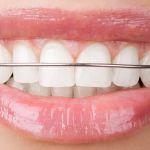How to Prevent Tooth Enamel Erosion: Essential Tips for Maintaining Healthy Teeth
- 1. Understanding Tooth Enamel Erosion
- 2. What Causes Tooth Enamel Erosion?
- 3. Signs of Tooth Enamel Erosion
- 4. How to Prevent Tooth Enamel Erosion
- 5. Diet and Enamel Protection
- 6. The Importance of Regular Dental Checkups
1. Understanding Tooth Enamel Erosion
Tooth enamel erosion is a condition where the protective outer layer of your teeth begins to break down or wear away. Enamel, the hardest substance in the human body, plays a crucial role in protecting your teeth from decay and sensitivity. When enamel erodes, it exposes the softer inner layers of the tooth, making them more vulnerable to damage and discomfort.
This condition is common but can be prevented with the right care. Early awareness of tooth enamel erosion can save you from costly treatments and painful dental issues down the road. In this article, we will explore the causes of enamel erosion, its signs, and how to prevent it to maintain healthy teeth and a confident smile.
2. What Causes Tooth Enamel Erosion?
Tooth enamel erosion is caused by a variety of factors, often working together to damage your teeth. Some of the most common causes of enamel erosion include:
- Acidic Foods and Beverages: Consuming acidic foods like citrus fruits, soda, and wine can erode enamel over time. These acids weaken the enamel, leading to gradual decay.
- Acid Reflux: If you suffer from acid reflux, stomach acids can travel up into the mouth and cause enamel damage. This condition can lead to a chronic erosion problem if not addressed properly.
- Brushing Too Hard: Brushing your teeth with excessive force or using a hard-bristled toothbrush can also contribute to enamel erosion. It's important to brush gently and with a soft-bristled toothbrush.
- Dry Mouth: Saliva plays a critical role in neutralizing acids in the mouth. Reduced saliva flow due to conditions like dehydration or medication side effects can increase your risk of enamel erosion.
- Grinding and Clenching: Habitual teeth grinding or clenching, often caused by stress or sleep disorders, can wear down enamel over time.
3. Signs of Tooth Enamel Erosion
Identifying enamel erosion early on can help prevent further damage. Here are some signs that your enamel may be eroding:
- Increased Tooth Sensitivity: If you notice a heightened sensitivity to hot, cold, or sweet foods and drinks, it could be a sign that the enamel on your teeth is thinning.
- Discoloration: As enamel wears away, the underlying dentin, which is yellow in color, becomes visible. This can cause your teeth to appear more yellowed or dull.
- Visible Cracks or Chips: Eroded enamel can cause your teeth to become brittle, leading to cracks, chips, or rough edges along the surface of your teeth.
- Glossy Teeth: A shiny or glossy appearance on the teeth is another sign of enamel erosion. The enamel is becoming thinner, which makes the surface more reflective.
If you notice any of these signs, it's important to consult a dentist for a professional evaluation. Early detection and treatment can prevent further enamel loss and more severe oral health problems.
4. How to Prevent Tooth Enamel Erosion
Preventing tooth enamel erosion requires proactive care and lifestyle changes. Here are some tips to help protect your enamel and keep your teeth healthy:
- Limit Acidic Foods and Beverages: Reduce the consumption of acidic foods like citrus fruits, soda, and wine. If you must consume them, try using a straw to minimize contact with your teeth.
- Rinse Your Mouth After Eating: Rinse your mouth with water after consuming acidic foods or beverages to help neutralize the acids and protect your enamel.
- Use a Soft-Bristled Toothbrush: Brush your teeth gently with a soft-bristled toothbrush and fluoride toothpaste. This will help prevent damage to the enamel while keeping your teeth clean.
- Chew Sugar-Free Gum: Chewing sugar-free gum can stimulate saliva production, which helps neutralize acids and protect the enamel.
- Protect Against Grinding: If you grind your teeth, consider using a mouthguard, especially while sleeping, to reduce the impact of clenching and grinding on your enamel.
- Stay Hydrated: Drink plenty of water throughout the day to maintain a healthy flow of saliva, which helps protect the enamel from acid attack.
5. Diet and Enamel Protection
Your diet plays an essential role in maintaining healthy enamel. Including foods that support enamel health and avoiding those that can erode it is crucial. Here are some dietary tips to help protect your enamel:
- Eat Calcium-Rich Foods: Calcium helps strengthen teeth and bones. Foods such as dairy products, leafy greens, and fortified plant-based milk can provide essential nutrients to maintain healthy enamel.
- Consume Phosphorus-Rich Foods: Phosphorus is another important mineral that helps maintain enamel strength. Good sources of phosphorus include fish, eggs, and lean meats.
- Avoid Sugary Snacks: Sugary foods contribute to plaque buildup and acid production, which can erode enamel. Choose healthy snacks like nuts, vegetables, and fruits to avoid enamel damage.
6. The Importance of Regular Dental Checkups
Regular dental visits are essential for maintaining healthy enamel. A dentist can monitor your enamel health, detect early signs of erosion, and provide preventive treatments like fluoride treatments to strengthen enamel. They can also offer advice on your brushing and eating habits to prevent enamel damage in the future.
If you haven’t had a dental checkup recently, it’s time to schedule an appointment. A professional can offer personalized advice and ensure your teeth stay protected from erosion.
For more information on how to prevent tooth enamel erosion and maintain a healthy smile, visit Dentistry Toothtruth.







 Ernstberger Orthodontics5.0 (326 review)
Ernstberger Orthodontics5.0 (326 review) Lightfoot Center for Laser Periodontics5.0 (69 review)
Lightfoot Center for Laser Periodontics5.0 (69 review) Kanawha City Pediatric Dentistry4.0 (163 review)
Kanawha City Pediatric Dentistry4.0 (163 review) Dr. Dental: Dentistry & Braces4.0 (711 review)
Dr. Dental: Dentistry & Braces4.0 (711 review) North Atlanta Family Dentistry4.0 (482 review)
North Atlanta Family Dentistry4.0 (482 review) Richmond VA Dental Arts4.0 (181 review)
Richmond VA Dental Arts4.0 (181 review) The Importance of Oral Health Education During Pregnancy for a Healthy Pregnancy
The Importance of Oral Health Education During Pregnancy for a Healthy Pregnancy Best Tips for Brushing Your Teeth Properly for Healthy Gums: Essential Techniques for Oral Health
Best Tips for Brushing Your Teeth Properly for Healthy Gums: Essential Techniques for Oral Health Why Skipping Dental Checkups Can Lead to Bigger Oral Health Problems
Why Skipping Dental Checkups Can Lead to Bigger Oral Health Problems Advantages of Porcelain Dental Restorations
Advantages of Porcelain Dental Restorations How Can Diabetes Cause Tooth and Gum Problems? Preventing and Managing Oral Health Issues
How Can Diabetes Cause Tooth and Gum Problems? Preventing and Managing Oral Health Issues Healthy Habits for Promoting Good Oral Health and Hygiene: Tips for a Healthy Smile
Healthy Habits for Promoting Good Oral Health and Hygiene: Tips for a Healthy Smile